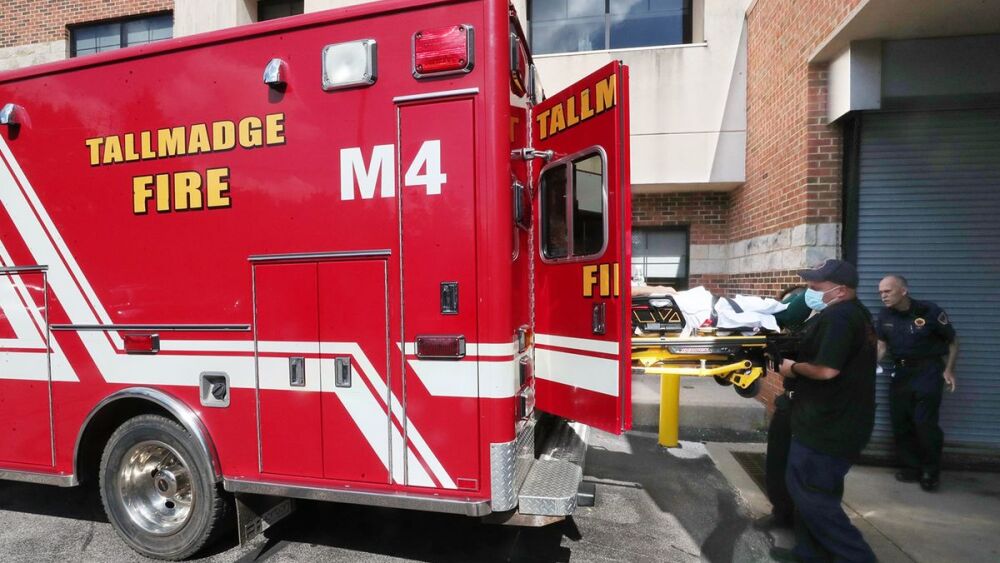I think it’s widely known that the medical system in the United States has major issues. EMS and emergency departments (EDs) are far from being exempt. We see it every day. There are a myriad of examples, such as:
- Blatant misuse of EMS and EDs, with both being used as primary care providers instead of patients seeing a primary care physician or going to an urgent care center.
- · Overcrowding and system overload, resulting in excessively long wait times, often for minor injuries/illnesses, which has the potential to create delays for care of critical patients.
- · Physicians prescribing incorrect medications, multiple medications by multiple providers, or too much of the same medication.
- · Patients being sent by urgent care centers or primary care physicians to the ED via EMS for minor illnesses because their offices are also overloaded.
- · People refusing needed treatment/transport because of lack of insurance and/or financial concerns.
- · People waiting too long to seek help because “I thought it would get better,” or “I just didn’t want to be a burden,” or even, “I don’t want to go to the hospital, they just kill people there.”
What we as paramedics can do
There is an overwhelming lack of education, misconceptions and misunderstanding regarding emergency care. But what can we do about it? We can’t fix the system. It’s such a big, multi-faceted issue with players far greater than we with far more influence. All true. But I believe we can take steps in our current roles to mitigate the detrimental effects to patients’ care and wellness from the system that’s in place.
How can we accomplish this?
- Providing patient education (home safety, medication usage, seeking appropriate care for the situation, etc.)
- Ensuring that we, as medical providers, are not contributing to the issues (educating ourselves, providing appropriate care to our patients, and being honest with our patients regarding their situation and the appropriate treatments)
- Speaking up when you see things that are incorrect or detrimental to patients
- Spending that extra little bit of time to do the right thing for our patients
It is so easy in the medical service to become jaded, burned out and bitter; or to become condescending with a superiority complex. After all, we don’t do things like go to the ED for a smashed finger, or call EMS because we have a stomach bug, so why should others? A good friend (an ED nurse and former paramedic) once told me, “That’s the problem with knowing too much … you become judgmental.” It’s so true, and something we need to conscientiously guard ourselves against.
Read next: EMS: Anyone could do it; not everyone should
Providers speak up
I reached out to multiple providers for their input regarding our prehospital and emergency department roles in reducing/mitigating harm in a medical system which is at times overwhelmingly discouraging. I was rewarded with some unique perspectives, specific identifiers for common issues and practical approaches to tackling these challenges.
“While I can see what is lacking in the EMS of the United States, I will stand by it as one of the finest systems in the world. I won’t pretend to have big solutions for parts of the EMS system that need change. Yet I understand any change I want to see begins with me. A pearl of wisdom presented to me in a classroom over 20 years ago by the legendary fire chief Alan Brunacini stays with me to this day: ‘Be nice, always, above and beyond to everyone I encounter at work as far as it depends on me.’” — Flight Paramedic P. Gutekunst
“There is a significant amount of study and teaching on disease processes in emergency settings, but there seems to be a lack of such on vitality, wellness, and how to generally stay healthy … creating positions for patient education on health and wellness versus just providing a ‘Band-Aid on a bullet hole’ for patients’ current complaints.” — K. Lasher-Mann, RN
“Recognizing EMS as healthcare providers, and subsequently moving federal regulation under Health and Human Services, instead of the Department of Transportation where we currently sit, will open the industry to many more funding opportunities which in turn come with staffing and training options not currently available.” — M. Weinberg, EMT-P, MSBA, EMS Assistant Chief of Administration
“Every day, we have more patients than we have time for and each patient has broader problems than our acute care can meet the needs of.” — B. Lang, MD, MPH
“EMS in general tends to chase after popular trends, rather than holding to proven scientific methodologies … “We learn to compartmentalize and dissociate from what just occurred to protect ourselves. Those a part of this field of work understand, but those on the outside don’t. All they see when they ask you for help is someone who does not care, they feel like a burden, and someone who is emotionless … the patients, even ourselves, don’t understand the physical changes our brains go through from the lack of sleep, the abuse of caffeine and nicotine, and the repeated traumatic calls. All the patients see is the initial harm. So how do we mitigate the initial harm and the further harm? This is done by understanding our own limits, being able to recognize our own destructive behaviors, and being emotionally intelligent.” — T. Martin, EMT-P, B.Sc (Psych)
It is clearly apparent that we cannot fully restructure the current medical system, however, in the roles we occupy, we can still take action to help reduce and prevent harm to our patients. The first rule of medical care is to “do no harm,” and we are a critically important part of the established structure, as we are often the introduction to the medical system for our patients and set the tone for their experience. Let’s take our job a step further, take the extra time and put in the extra effort to do what we can in our individual roles to compensate for the failures in the system currently in place.

















